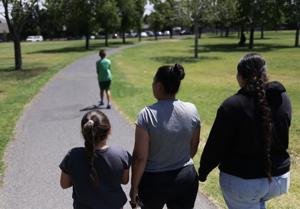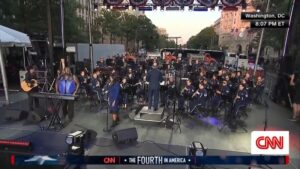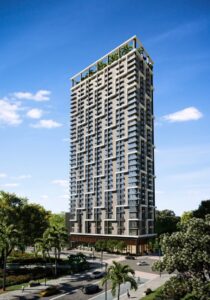
A synagogue door was set alight and an Israeli restaurant stormed in Melbourne on Friday night, marking the latest in a troubling series of antisemitic attacks across Australian cities. The incidents, which occurred in the bustling downtown area of East Melbourne, have sparked widespread condemnation and renewed concerns about rising antisemitism in the country.
According to Victoria state police, the attack on the synagogue took place around 8 p.m. local time. Approximately 20 individuals were inside the synagogue on Albert Street, participating in a Shabbat dinner, when a man poured flammable liquid on the front door and ignited it. Fortunately, no one was injured, and the fire was quickly extinguished by firefighters. The suspect, whose identity remains unknown, fled the scene.
Just over a kilometer away, on Hardware Lane, a popular area for dining and nightlife, a group of about 20 protesters stormed into an Israeli restaurant, chanting slogans. A 28-year-old was arrested for hindering police and later released on a summons. Witnesses reported that the group was chanting “Death to the IDF” before entering the restaurant, Miznon, which originated in Tel Aviv and expanded to Melbourne.
Escalating Tensions and Community Reactions
These incidents are part of a broader pattern of antisemitic attacks in Australia’s major cities, including Sydney and Melbourne. Since late last year, there have been reports of arson attacks on synagogues and swastikas defacing buildings and cars. The Jewish community, numbering around 117,000, is increasingly anxious about these developments.
Acting Commander Zorka Dunstan of Victoria state police revealed that officers are also investigating a third attack that occurred early Saturday morning. In this incident, three cars were set on fire near a business in the northeastern suburb of Greensborough, with suspects spray-painting the cars and walls. This business has previously been targeted by pro-Palestine protesters.
“We will examine the intent and the ideology of the persons or person involved,” Dunstan stated, indicating that the security investigation unit, part of the counter-terrorism command, is handling the investigation.
Official Condemnations and Community Solidarity
The attacks have drawn strong condemnation from officials and community leaders. Premier of Victoria, Jacinta Allan, denounced the synagogue attack, emphasizing its impact on Jewish families and the violation of a sacred space. “That it happened on Shabbat makes it all the more abhorrent,” she stated, highlighting the presence of children and women during the incident.
Melbourne’s Lord Mayor, Nicholas Reece, described the attack as “shocking” and reiterated the city’s commitment to peace and tolerance. “I cannot condemn this sort of behavior in stronger terms… this is a city of peace and tolerance, and we will not stand for this,” he said.
Alex Ryvchin, co-CEO of the Executive Council of Australian Jewry, urged Australians to denounce these acts of hate. “Those responsible cannot be reasoned with or appeased. They must be confronted with the full force of the law,” he wrote on social media.
Historical Context and Future Implications
Antisemitic incidents in Australia have been on the rise, mirroring a global trend of increasing intolerance and hate crimes. Historically, Australia has prided itself on being a multicultural society, yet these attacks challenge that identity and highlight the need for vigilance and proactive measures to safeguard minority communities.
The recent attacks have prompted discussions on enhancing security measures around places of worship and community centers. There is also a growing call for educational programs to combat antisemitism and promote understanding and respect among diverse cultural groups.
As investigations continue, the Jewish community and broader society await the outcomes and hope for a swift resolution. The incidents underscore the importance of unity and resilience in the face of hate, as well as the need for strong legal and social responses to prevent further occurrences.







